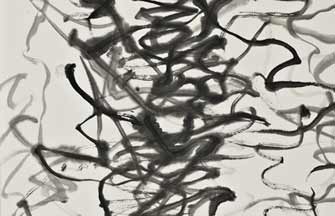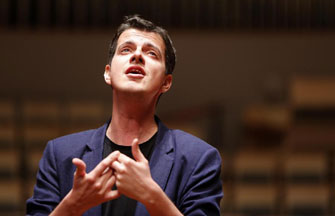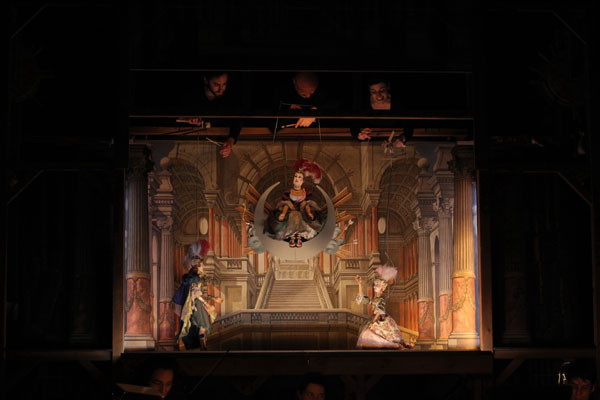 |
|
Puppeteers stage a parody of the baroque opera Hippolyte et Aricie (Hippolytus and Aricia) in Beijing. [Photo by Pang Bo/China Daily]
|
A parody of a French opera takes the stage in Beijing in an ongoing early-music series, Pang Bo reports.
A parody of the baroque opera Hippolyte et Aricie (Hippolytus and Aricia) by Jean Philippe Rameau (1683-1764), the most important French opera composer of the Enlightenment period, was staged on Sunday at the Forbidden City Concert Hall in Beijing.
The show, the second part of this year's Early Music Season, was presented by the Center of Baroque Music of Versailles to mark the 250th anniversary of Rameau's death.
The opera, based on classical mythology, is about the story of Thesee, king of Athens, who has gone to the underworld in a vain attempt to rescue a friend. Meanwhile, in Athens, his wife Phedre has fallen in love with his son by a previous marriage, Hippolyte, who himself loves the young princess Aricie. Thesee returns only to discover the turmoil in his household, and Hippolyte is falsely accused of an assault on Phedre. Thesee curses his son and calls on the gods for revenge, which comes in the form of a monster that attacks Hippolyte. All think Hippolyte dead, and the queen, full of remorse, reveals the truth. Eventually, Hippolyte turns out to have been miraculously rescued by the gods, and he is returned to wed Aricie.
Hippolyte et Aricie was Rameau's first opera, though he was nearly 50 when he composed it. His reworking of the Greek story of Phedre and her infatuation with her stepson Hippolyte can never quite settle on who and what the opera is really about - is Phedre the central character, or is it Hippolyte and his lover Aricie, or even his father Thesee?
In this parody version, as love eventually wins, the triumph of Hippolyte and his lover Aricie can be regarded as an ode to pure love.

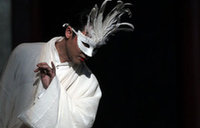





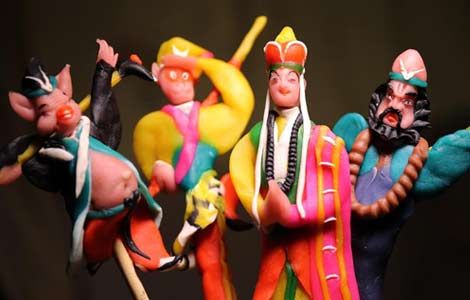


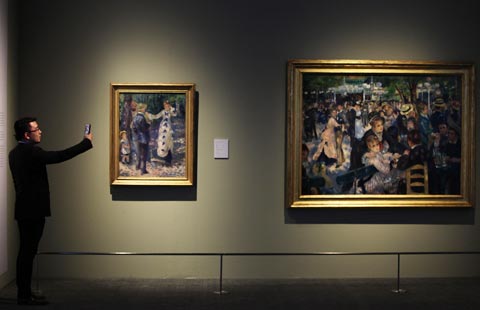













 Raymond Zhou:
Raymond Zhou: Pauline D Loh:
Pauline D Loh: Hot Pot
Hot Pot Eco China
Eco China China Dream
China Dream China Face
China Face


